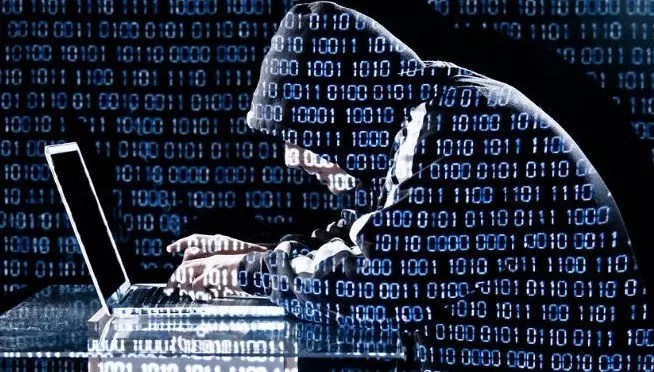
Author- Priyanshu Kunal, Student, University of Calcutta
Introduction
The advanced transformation has brought critical progressions in innovation, communication, and commerce. Be that as it may, besides the countless benefits, it has too uncovered society to unused dangers within the shape of cybercrime. As cyber dangers continue to advance, so do the laws that administer them. In this blog, we’ll investigate the advancement of cybercrime laws in India, the challenges confronted, and the potential prospects.
Early Stages of Cybercrime Laws in India
The introductory acknowledgement of cybercrime in India came with the sanctioning of the Data Innovation Act, of 2000 (IT Act). The IT Act presented the concept of electronic records and computerised marks and gave lawful acknowledgement to electronic exchanges. Be that as it may, it was limited in tending to the rising cyber dangers, as cybercriminals abused legitimate escape clauses and jurisdictional challenges.
Corrections and Enhancements
Recognizing the ought to address the developing danger of cybercrime, India made noteworthy alterations to the IT Act in 2008. The corrected Act extended the definition of cybercrime, expanded punishments for offences, and presented modern offences such as hacking, personality burglary, and cyber fear-mongering. These changes were pointed at reinforcing the lawful system for combating cyber threats.
Challenges in Implementation
Despite the corrections, compelling usage remains a challenge. The need for mindfulness among law requirement organisations and the legal around the complexities of cybercrime investigations hinders the method. Furthermore, the quick advancement of technology makes it troublesome for laws to keep pace with developing threats.
- Jurisdictional Challenges
The borderless nature of the web postures one-of-a-kind jurisdictional challenges for cybercrime examinations. Frequently, cybercriminals work from distinctive nations, making it troublesome for Indian specialists to secure and arraign them. Universal participation gets to be significant in such cases.
2. Information Security and Protection
The development of e-commerce and computerised administrations has driven an exponential increment in the collection and preparation of individual information.
Guaranteeing the security and security of this information has ended up being a critical concern. India’s Individual Information Security Charge, which is as of now beneath thought, points to address these issues.
Future Prospects
- Reinforcing Law Authorization and Legal Capacity:
Contributing to preparing law requirement staff and judges on cybercrime examination and indictment is pivotal to upgrading the adequacy of the legitimate system.
2. Collaboration with Private Division:
Collaborating with tech companies and private substances to share data and ability can help in combating cyber dangers effectively.
3. Worldwide Participation:
Reinforcing ties with other nations to encourage universal participation in cybercrime examinations will be basic to handling worldwide cyber threats.
4. Grasping Mechanical Progressions:
Grasping developing innovations like counterfeit insights and blockchain can move forward cyber defence mechanisms and offer assistance in early discovery and anticipation of cybercrimes.
5. Open Mindfulness and Education
Raising open mindfulness around cyber dangers and the best phones for online security is fundamental. Teaching people, particularly children and defenceless bunches, almost secure web utilisation, recognizing phishing endeavours, and securing individual data can go a long way in avoiding cybercrimes.
6. Building Cyber Forensics Capabilities
Cyber forensics plays a basic part in examining and arraigning cybercrimes. Building strong cyber forensics capabilities and setting up state-of-the-art legal research facilities can improve the capacity to assemble computerised proof, driving more effective prosecutions.
6. Empowering Private Segment Collaboration
The private division, counting tech companies, monetary education, and e-commerce stages, can play a noteworthy part in combating cybercrime. Empowering collaboration between the open and private divisions can lead to the sharing of danger insights and best homes, reinforcing the general cybersecurity ecosystem.
7. Assurance for Whistleblowers
Encouraging people to come forward with data about cybercriminals requires giving vigorous assurance to whistleblowers. Fortifying whistleblower assurance laws can cultivate a more secure environment for detailing cybercrimes and helping in their resolution.
Lawful Changes for Fast Response
Cybercrime examinations require quick activity, but conventional lawful forms can be time-consuming. Executing lawful changes to speed up cybercrime cases and setting up devoted cybercrime courts can guarantee a more fast reaction to cyber threats.
Collaboration with Worldwide Organizations
India ought to effectively lock in with worldwide organisations and gatherings centred on cybersecurity. Participating in such collaborations can give important bits of knowledge, capacity-building openings, and participation in cross-border cybercrime investigations.
Cybersecurity Mindfulness in Government Organizations
Government organisations too ought to prioritise cybersecurity mindfulness and preparing for their representatives. Executing strong security conventions and teaching government staff almost the dangers of cyber dangers can defend delicate information and basic infrastructure.
Cyberbullying and Online Harassment
Cyberbullying and online badgering have gotten to be genuine issues, particularly with the rise of social media. Fortifying laws to address these shapes of cybercrimes and giving bolster to casualties is significant in making a more secure online environment.
Conclusion
The advancement of cybercrime laws in India has been a journey of learning and adjustment. Whereas advance has been made, the challenges are ever-changing. A comprehensive approach including legitimate changes, collaboration between open and private segments, universal participation, and open mindfulness is vital to address the developing danger of cybercrime. By contributing to cybersecurity, India can construct a solid establishment to ensure its citizens and its advanced biological system are within the confrontation of advancing cyber threats.
The advancement of cybercrime laws in India has been travel stamped by advances and challenges. Whereas the nation has made critical strides in addressing cyber dangers, nonstop endeavours are required to adjust to the changing cyber scene. By tending to the challenges and grasping mechanical progressions, India can fortify its cybersecurity system and make a more secure computerised environment for its citizens.
References:
- Data Innovation Act, 2000 – https://www.meity.gov.in/content/information-technology-act2000
- Data Innovation (Revision) Act, 2008 – https://www.indiacode.nic.in/bitstream/123456789/1977/1/200817.pdf
- Personal Data Protection Bill, 2019 – https://www.prsindia.org/sites/default/files/bill_files/Personal%20Data%20Protection%20Bill %2C%202019.pdf
